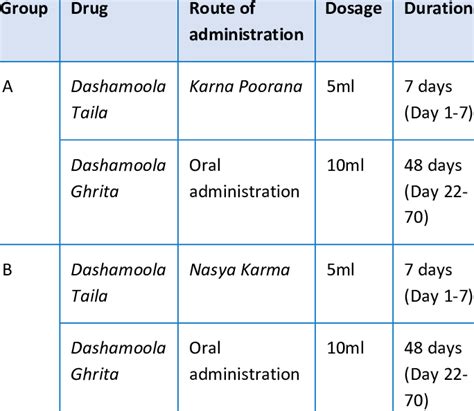Intro
Discover if Losartan is a diuretic, exploring its effects on blood pressure, fluid retention, and kidney function, with insights on angiotensin II receptor blockers and hypertension management.
Losartan is a medication that is commonly used to treat high blood pressure and protect the kidneys from damage due to diabetes. It belongs to a class of drugs called angiotensin II receptor blockers (ARBs), which work by blocking the action of a natural chemical that narrows blood vessels, allowing blood to flow more smoothly and the heart to pump more efficiently. While losartan is not a diuretic in the classical sense, it can have some diuretic-like effects in certain individuals.
High blood pressure, also known as hypertension, is a condition that affects millions of people worldwide. It occurs when the force of blood against the walls of the arteries is too high, which can lead to damage to the blood vessels, heart, and kidneys over time. Losartan is often prescribed to help lower blood pressure and reduce the risk of complications such as heart attack, stroke, and kidney disease. By blocking the action of angiotensin II, losartan helps to relax blood vessels, reduce blood pressure, and increase blood flow to the kidneys.
The kidneys play a crucial role in regulating blood pressure and maintaining overall health. They filter waste and excess fluids from the blood, regulate electrolyte levels, and produce hormones that help control blood pressure. In people with diabetes, the kidneys can become damaged over time, leading to a condition called diabetic nephropathy. Losartan has been shown to help protect the kidneys from damage and slow the progression of diabetic nephropathy.
How Losartan Works

Losartan works by blocking the action of angiotensin II, a natural chemical that causes blood vessels to constrict and blood pressure to rise. By blocking the action of angiotensin II, losartan helps to relax blood vessels, reduce blood pressure, and increase blood flow to the kidneys. This can help to reduce the risk of complications such as heart attack, stroke, and kidney disease.
In addition to its blood pressure-lowering effects, losartan may also have some diuretic-like effects in certain individuals. A diuretic is a medication that helps remove excess fluids from the body by increasing urine production. While losartan is not a diuretic in the classical sense, it can help reduce fluid retention and swelling in the legs, ankles, and feet.
Benefits of Losartan

The benefits of losartan include its ability to lower blood pressure, reduce the risk of complications such as heart attack and stroke, and protect the kidneys from damage. Losartan is also generally well-tolerated and has a low risk of side effects. Some of the most common benefits of losartan include:
- Lowering blood pressure: Losartan helps to relax blood vessels, reduce blood pressure, and increase blood flow to the kidneys.
- Reducing the risk of complications: Losartan can help reduce the risk of complications such as heart attack, stroke, and kidney disease.
- Protecting the kidneys: Losartan has been shown to help protect the kidneys from damage and slow the progression of diabetic nephropathy.
- Reducing fluid retention: Losartan may also have some diuretic-like effects, helping to reduce fluid retention and swelling in the legs, ankles, and feet.
Side Effects of Losartan

While losartan is generally well-tolerated, it can cause some side effects in certain individuals. Some of the most common side effects of losartan include:
- Dizziness or lightheadedness
- Headache
- Fatigue
- Nausea or vomiting
- Diarrhea or constipation
- Back pain
- Cough
It's essential to talk to your doctor if you experience any side effects while taking losartan. Your doctor may be able to adjust your dosage or recommend alternative treatments to help minimize side effects.
Interactions with Other Medications

Losartan can interact with other medications, including:
- Diuretics: Losartan may increase the effects of diuretics, leading to excessive fluid loss and dehydration.
- Potassium-sparing diuretics: Losartan may increase potassium levels in the blood, leading to hyperkalemia.
- Nonsteroidal anti-inflammatory drugs (NSAIDs): Losartan may increase the risk of kidney damage when taken with NSAIDs.
- Lithium: Losartan may increase lithium levels in the blood, leading to toxicity.
It's essential to talk to your doctor about any medications you're taking before starting losartan. Your doctor may need to adjust your dosage or recommend alternative treatments to help minimize interactions.
Dosage and Administration

The dosage and administration of losartan vary depending on the individual and the condition being treated. Losartan is typically taken once or twice daily, with or without food. The recommended dosage is usually 50-100 mg per day, but may be adjusted based on individual needs.
It's essential to follow your doctor's instructions and take losartan exactly as prescribed. Do not stop taking losartan without talking to your doctor, as this can lead to a rebound effect and increased blood pressure.
Conclusion and Next Steps

In conclusion, losartan is a medication that is commonly used to treat high blood pressure and protect the kidneys from damage. While it is not a diuretic in the classical sense, it can have some diuretic-like effects in certain individuals. Losartan works by blocking the action of angiotensin II, helping to relax blood vessels, reduce blood pressure, and increase blood flow to the kidneys.
If you're taking losartan or considering starting treatment, it's essential to talk to your doctor about any questions or concerns you may have. Your doctor can help you understand the benefits and risks of losartan and recommend the best course of treatment for your individual needs.
Is losartan a diuretic?
+Losartan is not a diuretic in the classical sense, but it can have some diuretic-like effects in certain individuals.
What are the benefits of losartan?
+The benefits of losartan include its ability to lower blood pressure, reduce the risk of complications such as heart attack and stroke, and protect the kidneys from damage.
What are the side effects of losartan?
+Common side effects of losartan include dizziness or lightheadedness, headache, fatigue, nausea or vomiting, diarrhea or constipation, back pain, and cough.
Can losartan interact with other medications?
+Yes, losartan can interact with other medications, including diuretics, potassium-sparing diuretics, nonsteroidal anti-inflammatory drugs (NSAIDs), and lithium.
How should I take losartan?
+Losartan is typically taken once or twice daily, with or without food. Follow your doctor's instructions and take losartan exactly as prescribed.
We hope this article has provided you with a comprehensive understanding of losartan and its effects. If you have any further questions or concerns, please don't hesitate to comment below. Share this article with friends and family who may be interested in learning more about losartan and its benefits. Take the next step in managing your blood pressure and protecting your kidneys by talking to your doctor about losartan today!
